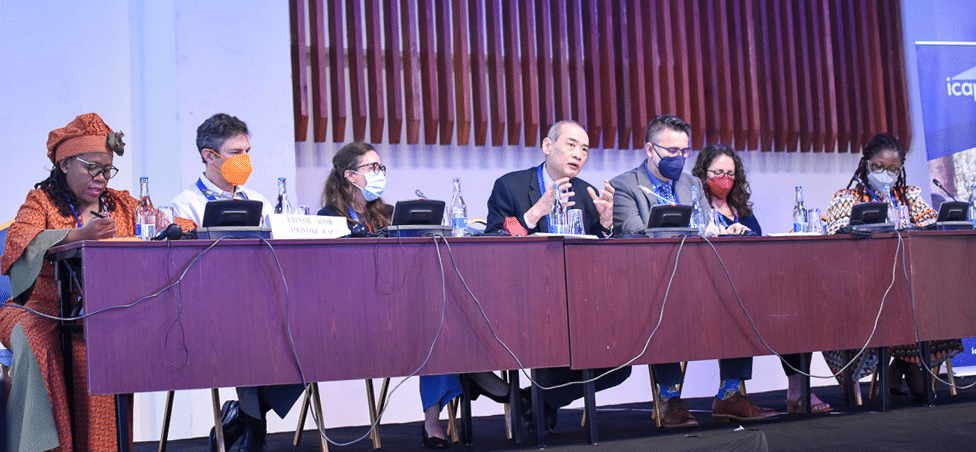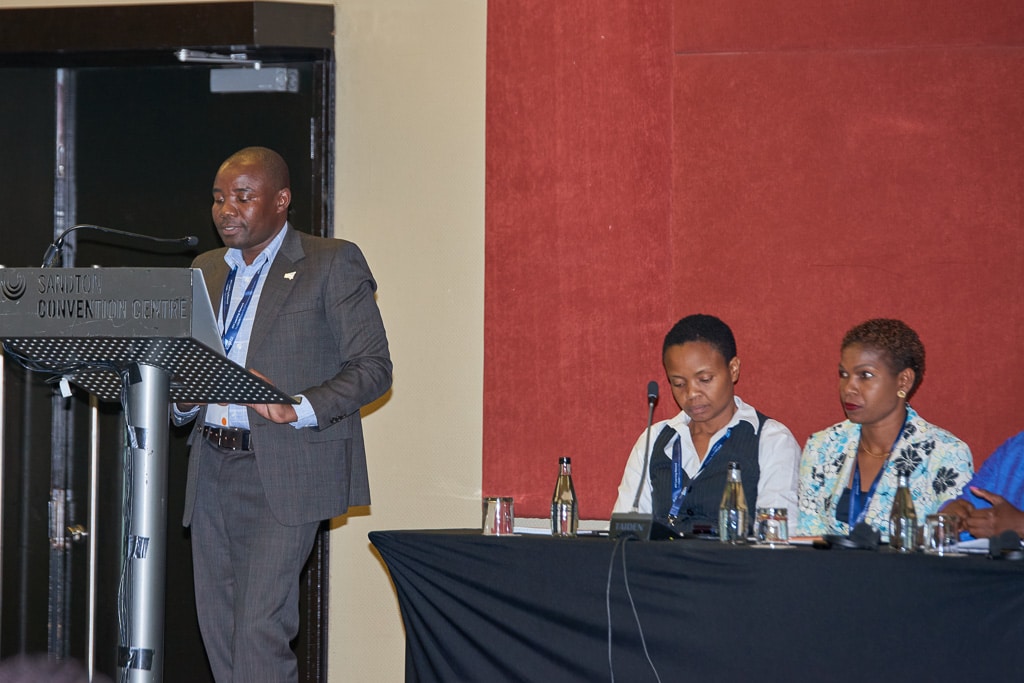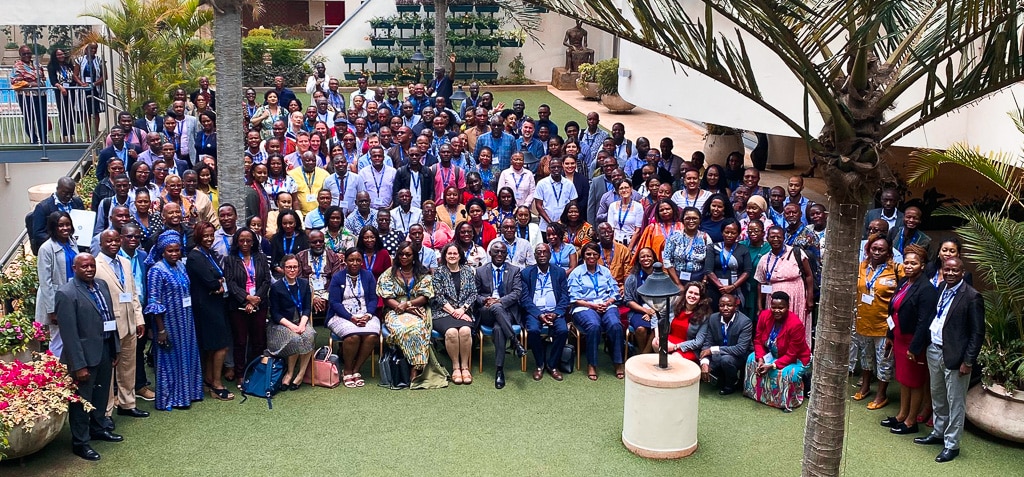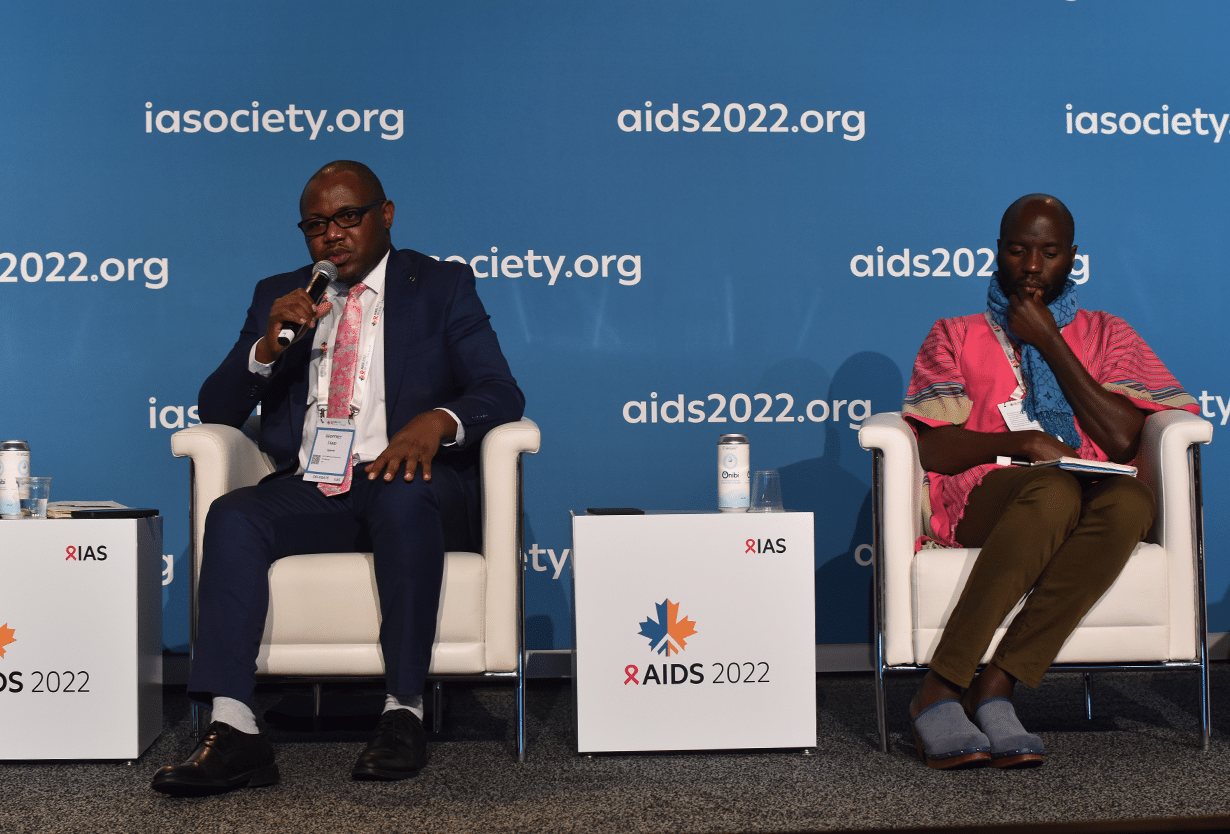HIV testing and linkage to post-test services are central to epidemic control and ending HIV as a public health threat.
ICAP’s CQUIN team is collaborating with diverse global stakeholders, including WHO, PEPFAR, CHAI, ITPC, the South-to-South Learning Network, key population-led organizations, and Ministries of Health from the 21 countries in the CQUIN Network, to co-create tools and share resources to address gaps in national HIV testing programs.
One key tool developed from this collaboration is the Differentiated HIV Testing Services Capability Maturity Model (dHTS CMM) that country teams use to self-assess their national testing programs.
Enabling and empowering people at high risk of HIV to know their status and access appropriate post-test services is essential for both individual health and HIV epidemic control.

Status-neutral HIV testing and linkage services are designed to support those at high risk of HIV to access testing and then to link to treatment services if they are positive or prevention services if they are negative. This requires a differentiated approach that tailors testing strategies to meet the needs and expectations of different groups of people.
Community of Practice
CQUIN officially launched the dHTS Community of Practice (CoP) on May 9, 2023, to support cross-learning among network countries through country-to-country exchange visits, community of practice calls, webinars, meetings, and sharing of tools and resources.
- 20 out of 21 CQUIN member countries have nominated dHTS CoP country focal persons.
- Dr. John Bosco Matovu (CQUIN Regional Clinical Advisor) is the technical lead, supported by Dr. Violet Oramisi (CQUIN Regional Strategic Information Advisor) and Ms. Noela Kida (CQUIN’s Operations Team Liaison).
- Following the launch of the dHTS CoP, CQUIN, together with other stakeholders, hosts quarterly calls focusing on country action plan priorities.
- The first set of calls in 2023 focused on the linkage of HIV testing services to combination prevention services.
- In 2024, CoP call priority topics will include social network testing, HIV self-testing, and the use of digital platforms to enhance mobilization, as well as testing and linkage to post-test services, among others.
Activities
Meetings and Satellites
CQUIN 7th Annual Meeting
November 2023, Johannesburg, South Africa
The dHTS community of practice hosted two sessions at CQUIN’s latest annual meeting — A parallel session discussing challenges and lessons learned while implementing status-neutral HIV testing services in CQUIN network member countries and a session on leveraging the CQUIN Capability Maturity Model to support country action plans for differentiated HIV testing services. In both meeting sessions, network countries presented updates on implementing their dHTS action plans after the first dHTS meeting in Nairobi, in March 2023.

Differentiated Service Delivery Across the HIV Testing Cascade Meeting
March 2023, Nairobi, Kenya
Following successful country self-assessments of testing services at the health system level, using CQUIN’s dHTS capability maturity model, CQUIN hosted a meeting in Nairobi, Kenya, to share knowledge, best practices, and innovations in delivering person-centered HIV testing and linkage services.

The three-day meeting included over 200 participants from over 20 countries and was structured to address the key elements of the HIV Testing Services cascade: Mobilizing (day 1), Testing (day 2), and Linkage (day 3). Framing remarks and summary staging results are available here.
The meeting was a success, with a total of 403 action points generated by country teams. Countries will use these action points to address key gaps and challenges in their national dHTS programs, as identified during self-assessments. Cross-cutting gaps include (but are not limited to) a lack of monitoring and evaluation systems to track status-neutral testing, the absence of dHTS implementation and scale-up plans, gaps in HTS quality management, and limited involvement of the private sector in country HTS programs.
Country participants will cascade the learning and key messages from the meeting to country leadership and other country stakeholders. Participants from each country will also present their action plans to wider national stakeholder teams for validation, prioritization, and approval. Country teams will then negotiate for funding of priority activities in ongoing COP23 and NFM4 discussions, and ICAP will work closely with other stakeholders to link Ministries of Health to appropriate technical assistance when needed.
AIDS 2022 Satellite Session – Differentiated Testing Services: Optimizing Program Design to Enhance Testing and Linkage
At the 24th International AIDS Conference (AIDS 2022), which took place from July 29 to August 2, 2022, in Montreal, Canada, CQUIN hosted a satellite session exploring the use of a DSD approach in designing high-impact HIV testing services. Discussions explored strategies for scaling up evidence-based targeted HIV testing, including discussions around the sustainability of HIV testing through engaging the private sector to subsidize the cost of HIV self-testing kits, making them affordable for the public.
Presentations included:
- Testing for Prevention in Zimbabwe (Gertrude Ncube, MOH Zimbabwe)
- Community Engagement in dHTS (Raymond Kwesiga: National Forum of PLHIV Networks in Uganda)
- Targeting Facility-Based Testing Using HIVST in Uganda (Geoffrey Taasi, MOH Uganda)
- Differentiated Testing Services for MSM in Kenya (Jeffrey Walimbwa, Kenya)
Key take-home points
- Testing for prevention augments efforts to end AIDS by 2030
- Adoption of a mix of evidence-based HTS models is necessary to maximize HIV case identification and prevention
- A sole focus on HIV-positive yield is no longer the optimal strategy for epidemic control: the status-neutral testing approach is now preferred.

Resources
- The CQUIN dHTS Capability Maturity Model
- CQUIN Differentiated Testing Services: An overview of CQUIN-member countries 2023 HIV testing self-assessment results
- dHTS Community of Practice Terms of Reference [English] [French]

